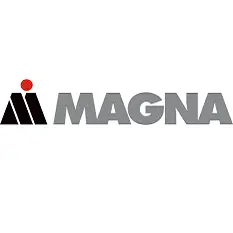Top Canadian EV Stocks to Buy in December 2024 and Beyond
There’s no question that electric vehicles (EV) are the future. In fact, as climate change becomes more and more of an issue, the push for electric vehicle usage and cleaner forms of energy has never been more important.
Whether or not you believe EV to be a solution to the issue, you cannot deny the fact that electric vehicles are gaining massive popularity, and some Canadian stocks have begun to hit the spotlight. I’m guessing by you landing on this article going over the top Canadian EV stocks, you know of the potential in the industry.
Canadian EV stocks are few and far between
Much like 5G options, there isn’t much when it comes to top EV stocks here in Canada. Most of the major producers like Tesla are south of the border and as a result many Canadians head there to invest.
There is certainly more promise in EV stocks in the United States. However, there is one key advantage we have in Canada when it comes to the limited, albeit promising EV stocks we have on the TSX and TSX Venture.
Nobody is paying attention to Canada when it comes to top EV stocks
The EV investment options could be largely overlooked compared to industries that currently garner more hype, such as Canadian pharmaceutical stocks. As a result, valuations here tend to be cheaper, and you can find some strong EV options in Canada for a fraction of the price. Although Tesla is attractive, purchasing a company trading at over 120 times forward earnings and 20 times forward sales can get a bit nerve wracking.
The top Canadian EV stocks in this article don’t have the fanfare or loyal following that Tesla does, but you’re still going to get exposure to a truly explosive industry. With that being said, lets get started.
The top Canadian EV stocks to buy today
- Magna International (TSX:MG)
- GreenPower Motors (TSXV:GPV)
- Lion Electric (TSX:LEV)
- NFI Group (TSX:NFI)
Magna International (TSX:MG)

We’ll kick this list off with what I would view as the most conservative EV play here in Canada, and that is Magna International (TSE:MG). Magna is one of the largest autopart manufacturers in the world, producing exteriors, interiors, seating, roof systems, chassis, powertrains, electronic systems, and even complete vehicle assembly.
But, one thing that many investors overlook about Magna International is its EV exposure.
In fact, the company currently owns a 7.4% stake in Fisker, a next-generation EV company. The company has numerous partnerships in the industry as well, including LG Electronics.
Magna isn’t exactly new to the space either. It has been producing EV products in China for quite some time, completing its 100,000th eDrive gearbox in mid 2021.
Magna certainly doesn’t provide the “explosive” level of growth many are looking for when it comes to the EV industry. But, there’s something to be said about a blue-chip giant that is making big moves into a budding industry.
No, Magna is not going to be a ten-bagger in a year or two. However, it’s also going to be a company that is still around in ten, twenty, or even fifty years. The same cannot be said for many speculative EV options.
Due to the cyclical nature of the auto industry, Magna is trading at only 12.5 times forward earnings. Prior to the company running into some supply chain issues, this forward PE could be seen in the high single-digits.
If we look to growth relative to valuation, considering Magna is expected to grow earnings at more than a 30% clip annually over the next 2-3 years, investors should be lining up to pay 12.5 times earnings, especially considering the company also offers a pretty respectable dividend, yielding in the mid 2% range.
Supply chain issues might hold this company back over the short term, but this $32B Canadian giant could be making waves in the electric vehicle industry over the next decade, as management has proven to be capable of adapting.
GreenPower Motors (TSXV:GPV)

More on the speculative side, GreenPower Motors (TSEV:GPV) is a Canadian EV stock trading on the TSX Venture under the ticker GPV and on the NASDAQ under the ticker GP.The company is a manufacturer and distributor of all-electric charter, school, and city buses. Think of the company as a pure EV comparison to NFI Group, which is also a bus manufacturer.
The company is young, some would say in its infancy.
Generating under $100,000 of revenue in 2016, the company had experienced significant levels of growth up until the pandemic hit, generating nearly $18M in revenue in Fiscal 2020.
In terms of medium to heavy duty EV vehicles, it is expected that over 50,000 will be sold by 2025 with that number ballooning to 912,000 by 2040. For electric busses, estimated production of 76,000 by 2040 marks a 3600% increase from the 2050 produced in 2020.
The company has a multitude of products, including school busses capable of transporting 90 students and operating ranges in excess of 150 miles.
It is a matter of when, not if, we move to electric only vehicles when it comes to public transit. Although consumer products are more difficult to push and take longer to adapt, cities, municipalities and governing bodies have the money and budgets to adapt to an all-electric environment quicker.
Analysts have some explosive growth numbers in mind for Greenpower, expecting the company to eclipse $167M in revenue in 2024, which would mark a tenfold increase from Fiscal 2020 numbers. EBITDA is also expected to turn positive next year before tripling to over $30M by 2024.
Considering the company is only trading at 5 times expected sales next year, it would be a good idea to at least have Greenpower Motors on your watchlist.
One important thing to keep in mind however is estimates are just that, estimates. Greenpower ended up missing the mark last year in terms of top and bottom line numbers. And it’s important an investment is made with some long term conviction.
Lion Electric (TSX:LEV)

Lion Electric (TSE:LEV) recently went public on both the NYSE and TSX via a Special Acquisition Corp (SPAC). Lion Electric has had mixed results and is down by quite a bit since it first started trading. However, this is not surprising as many Canadian EV stocks where on a large bull run before suffering significant corrections.
What exactly does Lion Electric do? The company manufacturers zero-emission vehicles.
It not only makes class 6 to class 8 commercial trucks, but electric buses and minibuses for mass transit and school systems. The company manufacturers and assembles all its vehicle components, including the chassis, battery packs, truck cabins, and bus bodies.
As a newly listed company, investors have to dig a little deeper to get financial results and manually calculate valuation ratios. Our main focus of concern is revenue growth.
In the first quarter of Fiscal 2021, it’s first as a publicly listed company, revenue jumped to $6.2M which was up significantly from the $1.0M it posted in Q1 of 2020. Robust growth is expected to continue as analysts expect 415% revenue growth in 2021.
In fact, the expectation is for revenue to more than double in Fiscal 2022 and Fiscal 2023, with revenue potentially eclipsing the $1B mark in 2023. When the merger was first announced the company had a backlog of 650 vehicles, and as of end of Q1, the order book stood at 817 vehicles and 76 charging stations.
Given the impressive growth rates and a forward valuation of 6.06 times next year’s sales, Lion Electric provides an attractive risk to reward ratio. But make no mistake, especially those just learning how to buy stocks, this company is risky, much riskier than a blue-chip Canadian EV stock like Magna International.
NFI Group (TSX:NFI)

In what I’d certainly call a “rebound” play, NFI Group (TSE:NFI) is not a pure-play EV stock. It is a company that is slowly transitioning its products to an EV model.
NFI Group organizes itself into two operations, manufacturing and aftermarket. Manufacturing takes up more than 50% of the company’s revenue and includes primarily the building and marketing of transit buses and motor coaches.
Its aftermarket segment simply provides spare parts and servicing related to these busses. Although it is a Canadian company, the bulk of its revenue is primarily generated in the United States.
The key catalyst from the company as of late has been its mission to provide emission free busses, adding to the green movement in light of climate change. The company has all electric products running in over 80 cities and 5 countries, and as of late 2021 had contributed over 40 million miles of zero-emission travel.
The company struggled mightily during the COVID-19 pandemic, as its factories were forced to idle, production collapsed and the company was forced to cut the dividend. It was then hit with a double whammy recently when it downgraded its guidance due to the pandemic and supply chain issues, many investors fearing slowing growth and yet another dividend cut.
The company is expected to rebound in a big way over the next few years, as earnings are set to double and revenue should increase at a low double-digit clip. If you’re looking for somewhat of a beat up Canadian EV stock, one you could buy on the cheap in terms of a full out turnaround, then you may not find a better option right now than NFI Group.
Over the long term, I’m not worried too much about NFI. But, just know that there is a chance this company continues to struggle moving forward as it has, and we could see further price downside as operations are impacted and the dividend is put at risk.
